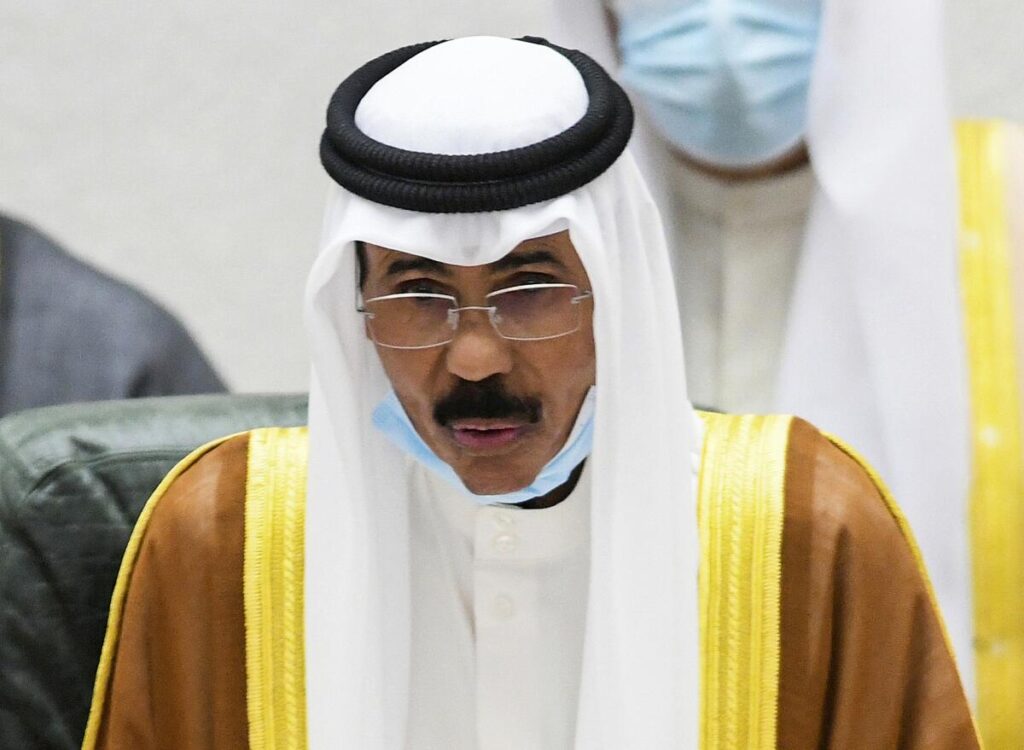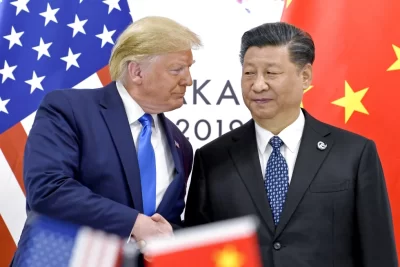
The ruling emir of oil-rich Kuwait was hospitalized Wednesday “due to an emergency health problem” but later reported to be in stable condition, renewing longstanding concerns over his health since he became ruler in 2020.
The report by the state-run KUNA news agency did not elaborate on the problem faced by 86-year-old Sheikh Nawaf Al Ahmad Al Sabah. However, Sheikh Nawaf has handed over power several times during his rule to his crown prince, his half brother Sheikh Meshal Al Ahmad Al Jaber, while facing medical checks and other issues.
Given Sheikh Nawaf’s age, the emergency renews concerns about his health. State-run news previously reported that he traveled to the United States for unspecified medical checks in March 2021.
Wednesday night, authorities put out a new statement urging the public to only take information from “official sources” about Sheikh Nawaf’s health. They also added he was receiving the medication he needed, again without specifying what illness he faced.
Sheikh Nawaf previously served as Kuwait’s interior and defense ministers, but he wasn’t seen as particularly active in government outside those terms. However, he largely was an uncontroversial choice for emir, though his advancing age led analysts to suggest his tenure could be short. Sheikh Meshal, now 83, is believed to be the world’s oldest crown prince.
Sheikh Nawaf’s term has largely been focused on domestic issues as Kuwait struggles through political disputes — including the overhaul of Kuwait’s welfare system — which prevented the sheikhdom from taking on debt. That’s left it with little in its coffers to pay bloated public sector salaries, even as Kuwait generates immense wealth from its oil reserves.
In 2021, Sheikh Nawaf issued a long-awaited amnesty decree, pardoning and reducing the sentences of nearly three dozen Kuwaiti dissidents in a move aimed at defusing a major government standoff. He issued another in recent days, aiming to resolve that political impasse in a nation with the Gulf’s freest parliament that comparatively allows for dissent.
Meanwhile, the Gulf Cooperation Council states, including Qatar, Saud i Arabia and the United Arab Emirates, have restored ties after years of a boycott of Doha. That has eased regional tensions and allowed Sheikh Nawaf to focus on issues at home. They include the need to repair roads and fix other long-lingering problems as the ruling Al Sabah family determine how succession will begin with a younger generation, said Bader al-Saif, an assistant professor of history at Kuwait University.
“It’s been three years and if one were to speak about those three years, we could say it’s a transformational period to see how to move from one generation to another,” al-Saif said.
Kuwait, a nation home to some 4.2 million people that’s slightly smaller than the U.S. state of New Jersey, has the world’s sixth-largest known oil reserves.
It has been a staunch U.S. ally since the 1991 Gulf War expelled the occupying Iraqi forces of Saddam Hussein. Kuwait hosts some 13,500 American troops in the country, as well as the forward headquarters of the U.S. Army in the Middle East.





